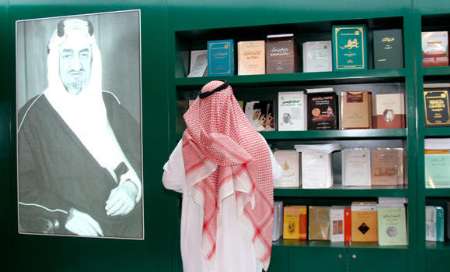
During July 19 meeting, Foreign Affairs Committee reviewed Saudi Arabia educational curriculum and their impacts on spreading extremism in Saudi Arabia and in the world as well.
Director of the Center for Religious Freedom Hudson Institute Nina Shea, Senior Fellow of the Foundation for Defense of Democracies David A. Weinberg, Distinguished Senior Fellow (Former U.S. Representative) Frank Wolf and the President of Emeritus International Center for Religion and Diplomacy Douglas Johnston delivered speech during the meeting.
Nina Shea addressed the meeting saying,” after 9/11, when it became clear that 79 percent of the terrorists who waged the murderous attacks on American soil that day, not to mention the plot’s mastermind, Osama bin Laden, were sons of Saudi Arabia, Saudi Arabia’s education system was brought into question.
The 9/11 Commission and other thoughtful voices suggested that the kingdom’s interpretation of Islam, Wahhabism, which is taught as the core of its schools’ standardized curriculum, could bear some responsibility for inciting violence against the West.”
Fears that the Saudi government was indoctrinating its young people in violent and belligerent teachings toward us proved warranted. In 2003, a scholarly panel commissioned by Saudi King Abdullah reviewed the middle and high school religious curriculum for three subjects pertaining to Wahhabi Islam –Fiqh (law), Hadith (tradition), and Tawhid (beliefs regarding monotheism). Their conclusion was as shocking as it was blunt.
Suggesting Saudi Arabia over textbooks, the State Department should be mandated to review and publicly report annually on contemporaneous editions of Saudi government’s textbooks, particularly the high school religious texts.
“American defense contracts with Saudi Arabia should be halted as long as the Saudi government publishes, posts, approves, finances or distributes textbooks that direct violence and hatred against any religion or group that may include American citizens,” she added.
Meanwhile, Weinberg said “a 2016- 2017 high school social studies book from Saudi Arabia calls Zionism an “octopus” that it falsely accuses of seeking to destroy the al-Aqsa Mosque and the entire “Islamic creed.” It should be noted that imagery of global Jewry as an octopus is a common trope used in other anti-Semitic hoaxes, including some editions of the Protocols of the Elders of Zion Henry Ford’s The International Jew, and Nazi propaganda.”
“The Saudi leadership is so eager to see the Trump team follow through on its tough rhetoric regarding Iran that they are willing to go to great lengths to stay in America’s good graces.”
In the meantime, Frank Wolf stressed on Saudi Arabia spreading extremism event outside the country, pointing to Islamic Saudi Academy in northern Virginia as an institution severing to spread extremism in US.
After reviewing the background of Saudi Arabia curriculum Douglas Johnston said “the textbooks were examined for instances of religious intolerance, including misrepresentation of religious beliefs or identity, collective blame, pejorative historical narratives, and content that promoted or excused violence and aggression on the basis on religion. “
“From what we could ascertain, the principal conduits through which most of these books have been distributed are Saudi Arabian humanitarian charities like the Muslim World League (MWL), the International Islamic Relief Organization (IIRO), the World Assembly (or Association) of Muslim Youth, the UK-based Al-Muqtada Organization, and the now-defunct Al-Haramain Fund (AHF).”
He went on to say that “in countries like Burkina Faso, Mali, Nigeria, Somalia, and Tanzania, it was reported that Saudi funders maintained close oversight of the teacher training and educational materials used in the religious schools they had built. As might be expected, in countries like Kenya, with its more sophisticated restrictions on foreign financing of religious institutions, the Kingdom had noticeably less influence over education.”
9376**1394
www.irna.ir
 solhkhabar | Peace International News Agency Peace International News Agency , Peace News , International Agency News of Peace
solhkhabar | Peace International News Agency Peace International News Agency , Peace News , International Agency News of Peace